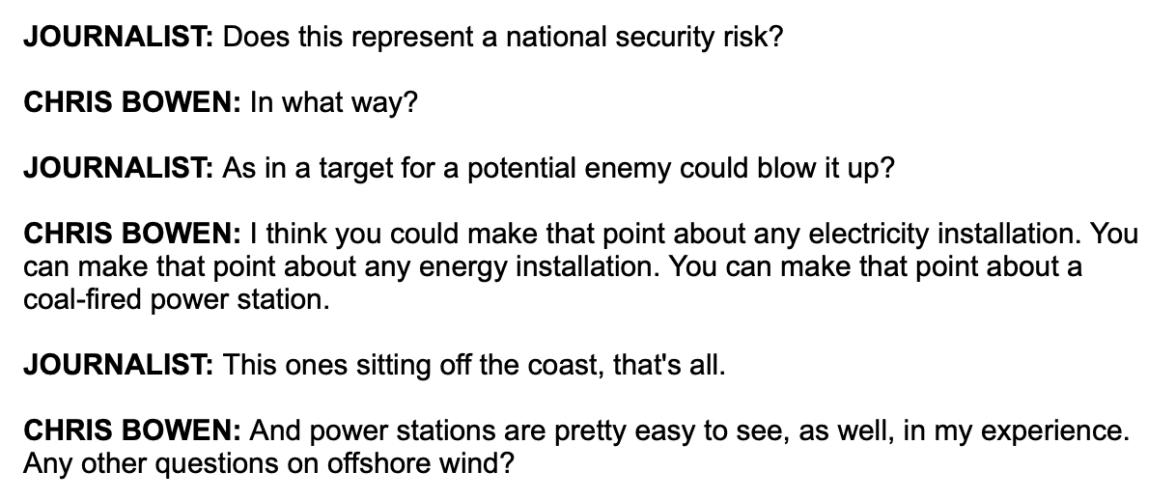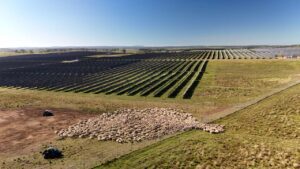Federal energy minister Chris Bowen was obviously prepared for a bunch of different questions on Thursday when he outlined more plans for a massive new offshore wind zone that could host up to 8GW of the giant turbines some 20kms off the Newcastle coast.
One question might have caught him by surprise came from a journalist asking if the massive wind turbines presented a national security risk, because they could be “blown up” by an enemy. Bowen handled it pretty well.
 As Bowen as others have since pointed out, bombing targets in existing energy infrastructure, based around the fossil fuel industry, are many, and bigger and likely easier to hit: Oil tankers, power stations, railroads etc.
As Bowen as others have since pointed out, bombing targets in existing energy infrastructure, based around the fossil fuel industry, are many, and bigger and likely easier to hit: Oil tankers, power stations, railroads etc.
But the question – which apparently came from a reporter with the Newcastle Herald – might not have been as daft it sounds. In Europe, the issue is front of mind for some intelligence services, still reeling from the explosions in the Nord Stream gas line late last year.
In the Netherlands, the Dutch General and Military Intelligence and Security Services (AVID and MVID) have reportedly sent a letter to the government about cover activities conducted by Russia, including the potentially sabotage of Dutch energy infrastructure in the North Sea.
The agencies warned that they have information on Russia mapping the country’s North Sea infrastructure, including gas pipelines, offshore wind farms, and internet cables.
Dutch naval authorities recently escorted a Russian war ship away from a Dutch-owned offshore wind farm, and in a media briefing earlier this week, Dutch military officials accused Russia of spying on western assets including offshore wind farms.
“We saw in recent months that Russian actors tried to uncover how the energy system works in the North Sea. It is the first time we have seen this,” General Jan Swillens of MIVD said during the press briefing.
The report asserts that Russia was attempting to map out the wind farm and possibly other infrastructure elements. Other countries such as Norway have reported unauthorized drones operating near some of its offshore oil platforms.
The UK in January acquired two former commercial offshore vessels to be assigned to the Royal Navy, one to protect subsea assets such as cables, and another to find and destroy threats such as mines that could be used to damage pipelines, cables, and other undersea assets.










